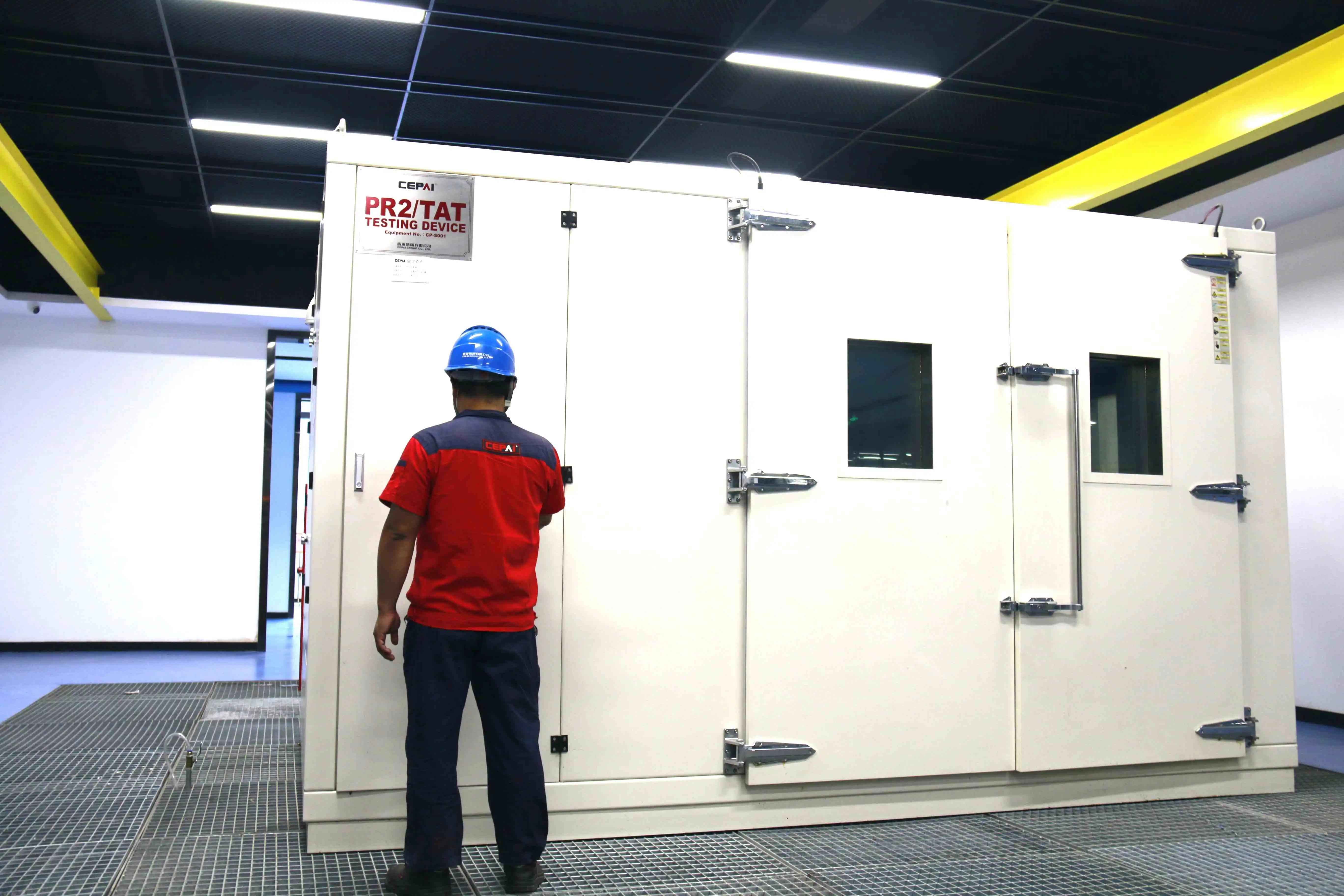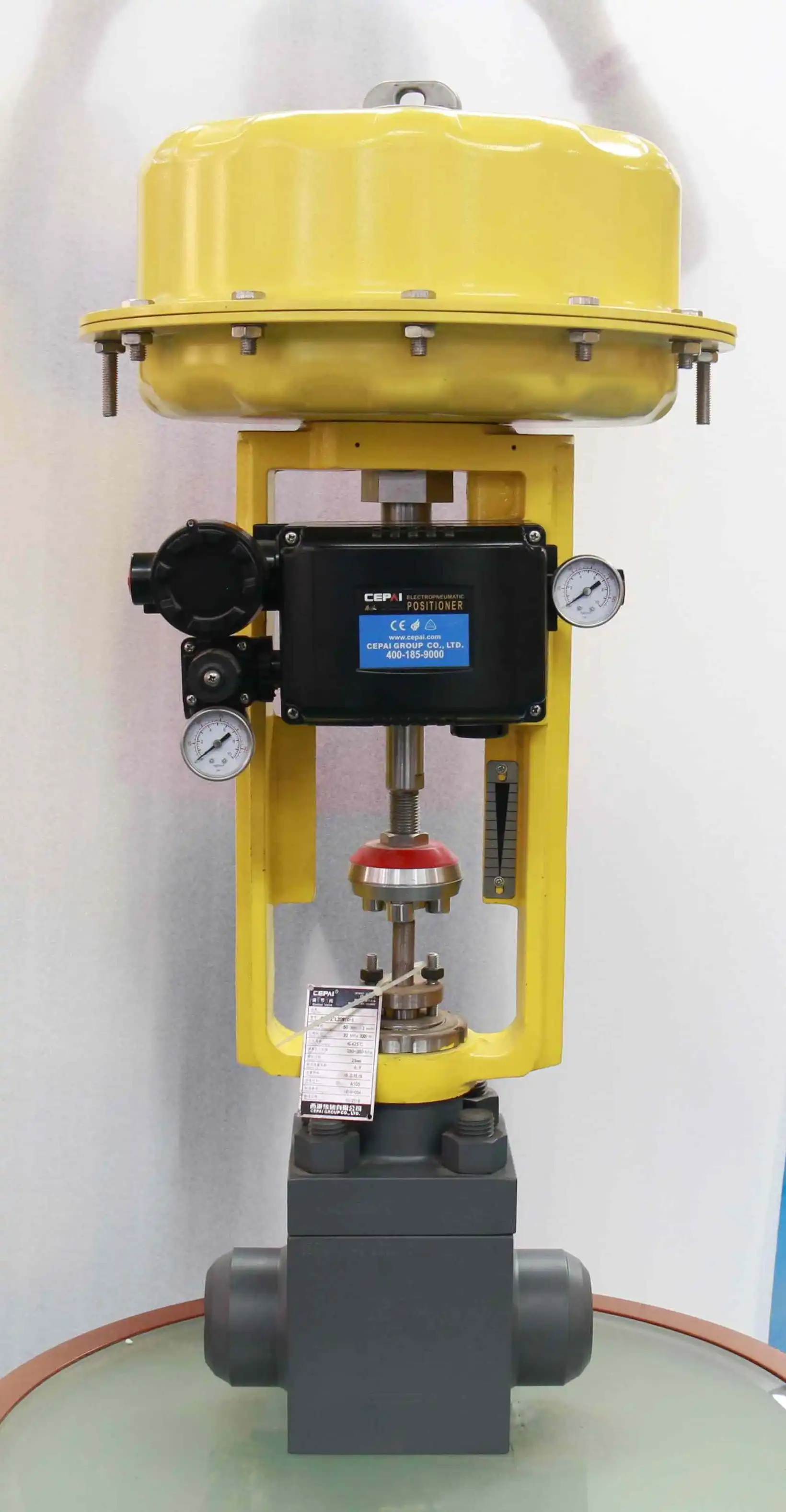More and more B2B buyers are choosing the B2B pneumatic valve when they are looking at choices for controlling fluids in industrial systems. The accuracy and longevity of these valves are very high, which is important for controlling processes in manufacturing equipment and other industry machinery. Some of the best things about pneumatic control valves are that they use compressed air to power the device and they can better control the flow. Pneumatic valves are an important part of modern control systems because of these reasons. Professionals who need reliable and accurate automation solutions choose these valves over others.
Key Parameters Influencing the Choice of Pneumatic Control Valves
To properly evaluate air control valves for industrial use, you need to know about certain important factors. Buyers usually pay attention to:
- Pressure Control Range: Making sure that the valve works within the safe and efficient pressure ranges.
- Flow Regulation Precision: Being able to change the flow of fluids exactly, which is necessary to keep the process consistent.
- Actuator Compliance: Being able to work with gas actuators and solenoid valves to get the best mechanical reaction.
- Durability and Corrosion of Materials Resistance: To last longer and work in harsh industry settings.
- Response Time and Repeatability: These are very important for dynamic control systems that need to make changes quickly and reliably.
These factors make sure that B2B pneumatic valve air systems work well with both mechanical parts and fluid dynamics, which helps make processes more efficient and long-lasting.

Core Benefits of Pneumatic Control Valves
In industrial settings, using air control valves has benefits that go beyond their basic function. Examples of important benefits are:
- Extreme Durability: Made to last throughout constant use, which cuts down on downtime and upkeep costs.
- Higher-Precision Control: Allows fine-tuning of process factors, which improves the quality and consistency of the result.
- Utilizes compressed air, which typically uses less energy than electrical devices.
- Dependability and safety: Mechanical ease lowers failure rates and improves security for people and property.
- Huge Selection of Products and Customization: Meets the different process control needs of many businesses.
According to the automation environment, these perks are exactly what B2B pneumatic valve industrial valves need.
CEPAI Group Co., LTD.'s B2B Pneumatic Valve Compared to Competitors
CEPAI Group Co., LTD. stands out because it is dedicated to quality and new ideas in B2B pneumatic valve air valve technology. These are what our valves have to offer:
- Advanced Research and Development: Consistent funding creates patented technologies and the best valve actuator designs in the business.
- ISO-Certified Quality Management: Using a strict ISO quality system makes sure that goods meet strict international standards.
- Full Technical Support: Pre-sales talks and custom valve selection services help clients get the best options.
- Before and After the Sale: Regular maintenance, online tracking, and quick responses ensure long-term operating efficiency.
- Strong Logistics and Supply Chain: Makes sure that products are delivered on time and are always available on the global market.
All of these things help buyers trust CEPAI more and raise its standing in the fields of hydraulic systems and fluid control technology.
How to Use Pneumatic Control Valves to Maximize Benefits?
Getting the most out of B2B pneumatic valve pneumatic control valves requires careful planning, the right installation, and regular upkeep:
- Advice on How to Buy: Pick valves that exactly match the pressure and flow needs of your process. You could use CEPAI's expert pre-sales advice to find the best fit.
- Best Practices for Installation: Make sure the system is compatible with compressed air sources and that the actuator is aligned according to the manufacturer's instructions to avoid pressure drops and wasted time and money.
- Techniques for Operation: Use valves within the recommended temperature and pressure ranges and combine them with dependable solenoid valves for smooth control reaction.
- Watching over and maintaining: By using CEPAI's remote intelligent services and doing regular checks, you can find early signs of wear and keep the system running smoothly.
These kinds of methods improve the flow of fluids and make B2B pneumatic valve tools last longer in your industrial automation system.

Important Notes for B2B Buyers Considering Pneumatic Control Valves
The effectiveness of pneumatic valve integration is affected by many factors:
- Verify supplier credentials, certifications, and adherence to international quality standards.
- Ensure the valve's material is suitable with the specified fluid and environment to prevent corrosion or damage.
- Request extensive testing documentation to demonstrate compliance with performance criteria.
- During the valve's lifetime, think about the supplier's ability to provide technical assistance and modification.
- Prioritize valves with proven longevity to reduce operating interruptions and maintenance overhead.
Adhering to these B2B pneumatic valve recommendations preserves your investment and promotes process control dependability.
Conclusion
B2B pneumatic valves provide unrivaled benefits in industrial automation, including precision control, durability, and operational efficiency. CEPAI Group Co., LTD. differentiates itself via technical innovation, tight quality control, and extensive customer support. These elements combined provide consumers a dependable and personalized fluid control solution. The knowledge contained in CEPAI's solutions guarantees smooth integration with varied industrial gear, eventually boosting process control and productivity. By knowing basic factors and following best practices in valve selection and maintenance, customers may experience the full potential of pneumatic systems in their automation solutions.
FAQ
Q1: What distinguishes pneumatic control valves from solenoid valves?
A: Pneumatic control valves utilize compressed air to activate valve systems, giving exact flow regulation and pressure control in industrial automation. other hand, usually work electrically and handle easy open/close jobs. Valves shine in situations needing subtle flow control and mechanical longevity.
Q2: How does CEPAI ensure the quality of its B2B pneumatic valves?
A: CEPAI uses a strict ISO quality management system, including advanced material analysis, dimensional checking, and multi-stage process control. Each valve receives final performance testing matched with international standards, backed by a committed team of inspectors ensuring zero defects before shipment.
Q3: Can pneumatic control valves be customized for specific industrial applications?
A: Yes, CEPAI offers tailored solution services allowing modification of valve specifications, actuator compatibility, and material composition to meet unique manufacturing equipment requirements and process control challenges.
Q4: What maintenance practices do pneumatic valves require to ensure longevity?
A: Regular cleaning, planned inspections, and tracking of actuator function are important. Utilizing CEPAI's after-sales repair service and online intelligent tracking can proactively spot problems and extend valve service life.
Q5: Are pneumatic valves suitable for hazardous industrial environments?
A: Absolutely. The mechanical simplicity and robust construction of pneumatic valves make them ideal for settings demanding high safety standards, as they reduce electrical dangers and provide reliable pressure and flow control.
Q6: How does the flow regulation capability of pneumatic valves impact industrial processes?
A: Precise flow control increases process consistency, lowers material waste, and improves product quality. Pneumatic valves enable fine changes, adding greatly to improved overall system performance.
Where to Buy a B2B Pneumatic Valve?
For individuals seeking top-tier B2B pneumatic valves, CEPAI Group Co., LTD. delivers incomparable goods and services. Our offers include bespoke valve solutions, skilled technical consulting, and solid after-sales support. To inquire or receive consultation, contact us at cepai@cepai.com. Discover how CEPAI's B2B pneumatic valve solutions can elevate your industrial automation needs. For more details, please refer to the website: valveblog.jscepai.com.
References
1. Angelidis, D., & Koliopoulos, P. (2021). Industrial Automation and Fluid Control: Pneumatic Valve Applications in Process Industries. Journal of Automation Technologies.
2. Bryant, R. (2020). Advances in Valve Actuator Technologies: Enhancing Precision and Durability. Industrial Engineering Review.
3. Caruso, F. et al. (2019). Comparative Study on Solenoid and Pneumatic Valves in Manufacturing Equipment. Fluid Dynamics and Process Control Journal.
4. Davies, L. (2022). Quality Management Practices in Industrial Valve Manufacturing. International Journal of Mechanical Components.
5. Evans, M. & Sharma, V. (2023). The Role of Pneumatic Systems in Modern Industrial Machinery. Automation Solutions Quarterly.
6. Harrison, J. (2021). Enhancing Flow Regulation and Pressure Control Using Pneumatic Valves. Journal of Industrial Valves Technology.
_1745994738000.webp)



